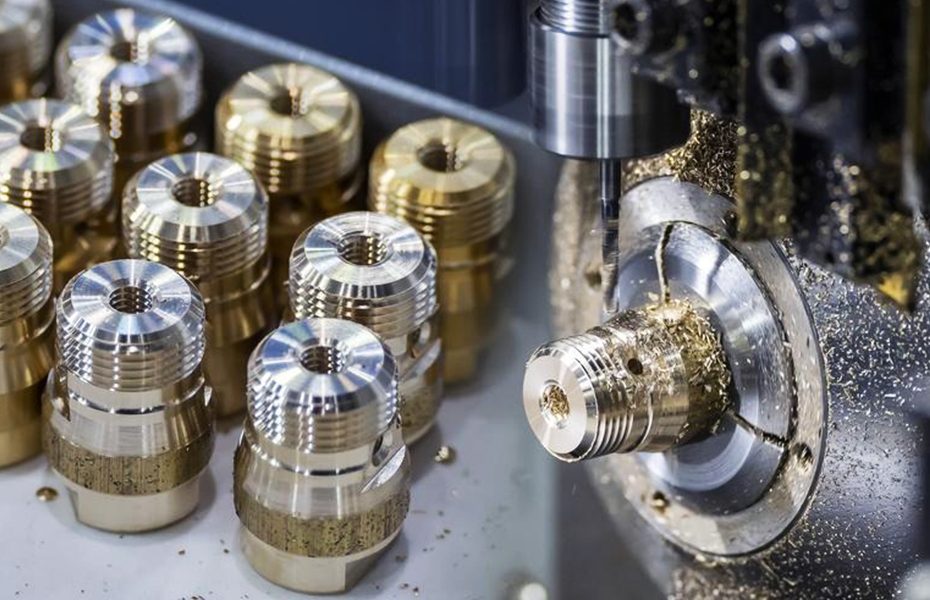Are you looking for a material with good mechanical properties, strong corrosion resistance, good malleability, high conductivity, and even good acoustic characteristics? If so, you should consider brass because this remarkable metal has all those properties in one.
Brass is a special copper alloy. Brass is an object made of an alloy of copper and zinc. It is named for its yellow color. Brass with a copper content of 56% to 68% has a melting point of 934 to 967 degrees. Brass has good mechanical properties and wear resistance. Because of its unique advantages, it has become an important part of the component manufacturing industry. Generally, it is used more in precision copper parts such as auto parts, medical parts, and electrical parts. Brass CNC manufacturing has many advantages over other metal CNC machining processes, which is the reason for the demand. This article discusses several benefits of CNC machining with brass.
The following pointers will help you understand why brass CNC machining never goes out of vogue:

High-Speed Machining
Brass offers excellent machinability that is sometimes referred to as 100% machinability. The mechanical properties of this alloy are high strength, high tensile strength, and shear resistance. These properties contribute to the machining speed while using brass. The research shows that brass CNC manufacturing can be performed at speed 5 to 20% higher than other metal CNC machining processes.
Precision Machining and Dimensional Stability
Brass is well-known for its dimensional stability and is suited for strict tolerance manufacturing, too. Due to less deformation factor and high impact resistance, brass components remain dimensionally stable.
High Workpiece to Tool Compatibility
In brass CNC machining, there is negligible chip formation therefore tool wear and tear are minimum. Generally, brass rod workpieces are preferred for CNC machining. These workpieces are highly compatible with all sorts of CNC machining tools. Tool durability and friction free machining give higher machining productivity.
Availability of Various Material Grades
The physical properties of different grades of brass — and, therefore, precision brass components — vary slightly depending on their chemical composition. The two most common grades of brass are:
- Free Machining Brass: Also known as C36000, alloy 360, or free cutting brass, free machining brass consists of approximately 60%-63% copper, 33%–37% zinc, 2.5%–3% lead, and 0.35% iron. It is one of the most versatile and commonly used grades of brass due to its excellent machinability rating, tensile strength, and corrosion resistance.
- Naval Brass: Also known as C46400 brass, Naval brass consists of approximately 60% copper, 40% zinc, and 1% tin. It gets its name from the fact that it’s commonly used in marine construction because its high corrosion resistance and hardness make it suitable for fresh and saltwater applications.
Higher Productivity and Profit
Being a fast, and precise machining process, brass CNC machining increases process efficiency. Brass is comparatively an economically convenient material, therefore it benefits the capital investment of machining material. Tool durability in this process is higher, therefore, the cost of frequently replacing tools is reduced. Along with all, post-machining treatments are not required in this process. These factors altogether lead to higher productivity and profit. Bonus
Brass CNC Machining is Eco-friendly
Brass is a copper alloy that retains the chemical or physical properties of natural copper. However, a few properties are enhanced in this alloy. Therefore, the material in this process is eco-friendly. Along with that, Brass CNC machining does not inject any harmful gases, or chemicals into the environment. It is a zero scrap process as left out material can be recycled to 100% efficiency. Therefore, this is a green machining process.

Common CNC Brass Parts & Applications
Due to its exceptional machinability, brass can be used to create a wide variety of custom parts, including:
- Valves
- Nozzles
- Bearings
- Fluid fittings
Precision brass components are commonly used for applications in the electronics and medical industries; however, brass is suitable for use in almost any industry.
Is Brass the Right Choice for Your Project?
The various brass alloys showcase the excellent potential these metals have for use in a wide range of applications. Aside from being extremely economical to produce parts by machining, brasses offer good strength and the potential for excellent corrosion resistance, along with an assortment of other characteristics.
For example, if your product will be used in a saltwater environment, you may want to avoid C360 and use either C464 or C443 instead.
Ultimately, the requirements for your final product will help you to narrow down the options. Then once you’ve chosen the most suitable materials for your project, you can rely on our service experts to help you out with the machining production! If you need CNC Brass Parts, Come and chat with us and check our CNC machining services.
